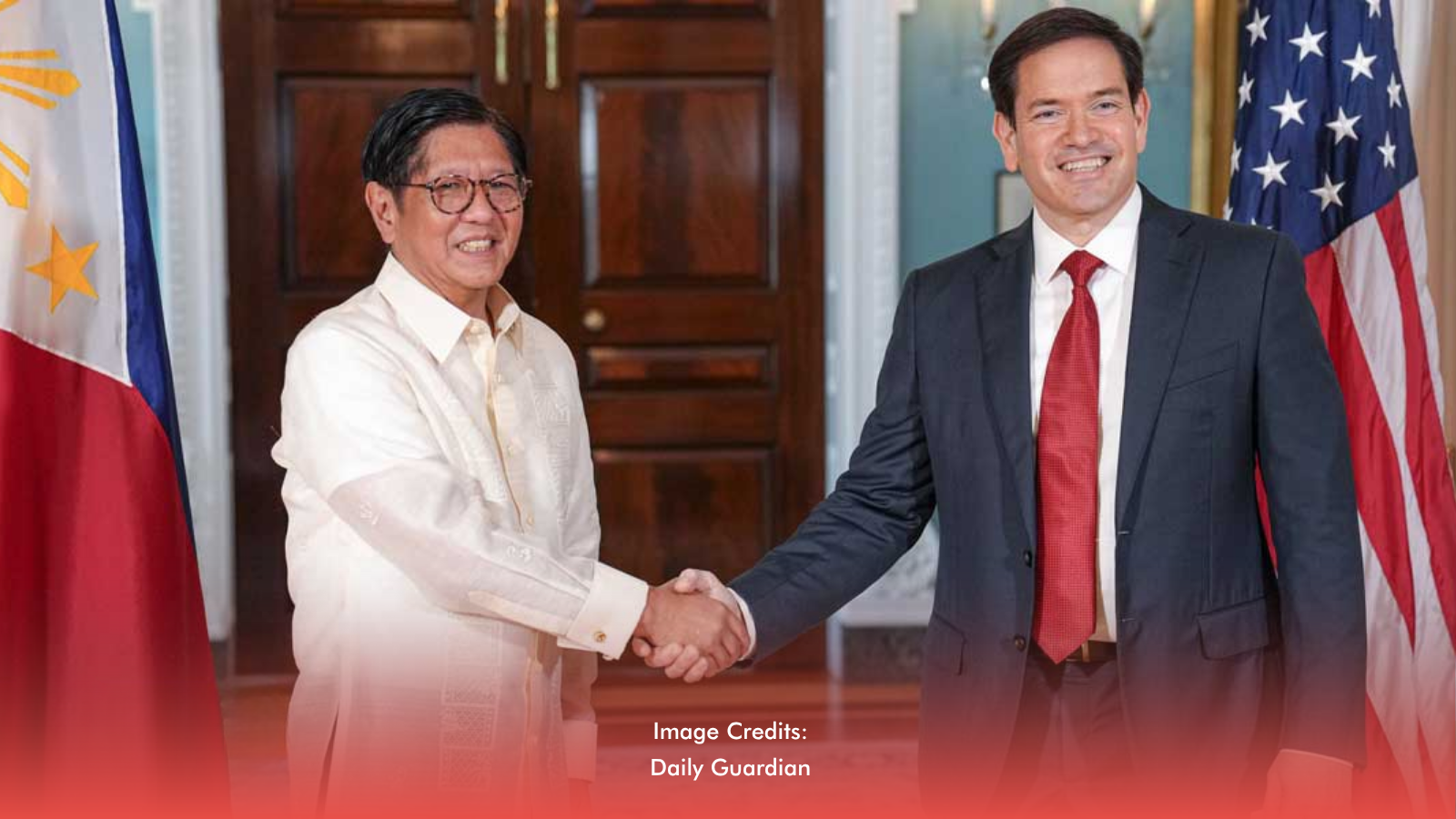The U.S. Department of State has pledged at least P3 billion or $60 million in foreign assistance to support energy, maritime, and economic growth programs in the Philippines. The announcement came after U.S. Secretary of State Marco Rubio’s meeting with President Ferdinand Marcos Jr. in Washington, D.C. on July 21.
This marks the first foreign aid package unveiled under the Trump administration’s ongoing review and realignment of U.S. assistance since January, signaling a renewed commitment to the U.S.-Philippines alliance despite recent trade tensions.
RELATED: [PH Pursues Specialized Trade Deal With U.S.]
Focus on Luzon Economic Corridor
Alongside the broader $60 million aid package, Rubio also shared plans to work with the U.S. Congress to set aside an additional P825 million or $15 million specifically to “catalyze private sector development in the Luzon Economic Corridor.” If approved, the funding is expected to boost investments in transport, logistics, energy, and semiconductor manufacturing — all critical sectors for job creation and sustainable economic growth.
In a statement, the U.S. Embassy in Manila confirmed:
“As part of this at least P3-billion initiative, Secretary Rubio also announced that the U.S. Department of State intends to work with the U.S. Congress to allocate P825 million ($15 million) to catalyze private sector development in the Luzon Economic Corridor.”
Marcos Jr.’s recent meetings in Washington with U.S. President Donald Trump, Defense Secretary Pete Hegseth, and Rubio were described as part of efforts to deepen economic ties and reaffirm the U.S.’ “ironclad commitment” to the longstanding alliance between both nations.
RELATED: [U.S. To Establish Vessel Facilities In Palawan, Aiding WPS Efforts]
Trade Tensions Spark Debate
The announcement of new aid coincided with Trump’s decision to impose a 19% tariff on all U.S.-bound Philippine exports, which drew mixed reactions from the business community.
Canadian entrepreneur and investor Kevin O’Leary weighed in on the issue, stressing the importance of a balanced approach.
“It’s more important than many other countries because it’s strategic militarily in what’s going on with China, and we need access to that land mass if we’re going to talk about protecting our interests in Taiwan in that region,” O’Leary said in a television interview.
He added that the Philippines has proven to be a reliable trade partner for the U.S.
“It is also a good trade partner, as a lot of manufacturing has moved out of China there. We do some business there. It would be good to have a reciprocal tariff that’s low with the Philippines,” O’Leary added.
While the proposed tariffs stirred concern among some local industries, officials highlighted that the new aid package aims to balance trade challenges with investment-driven development.








